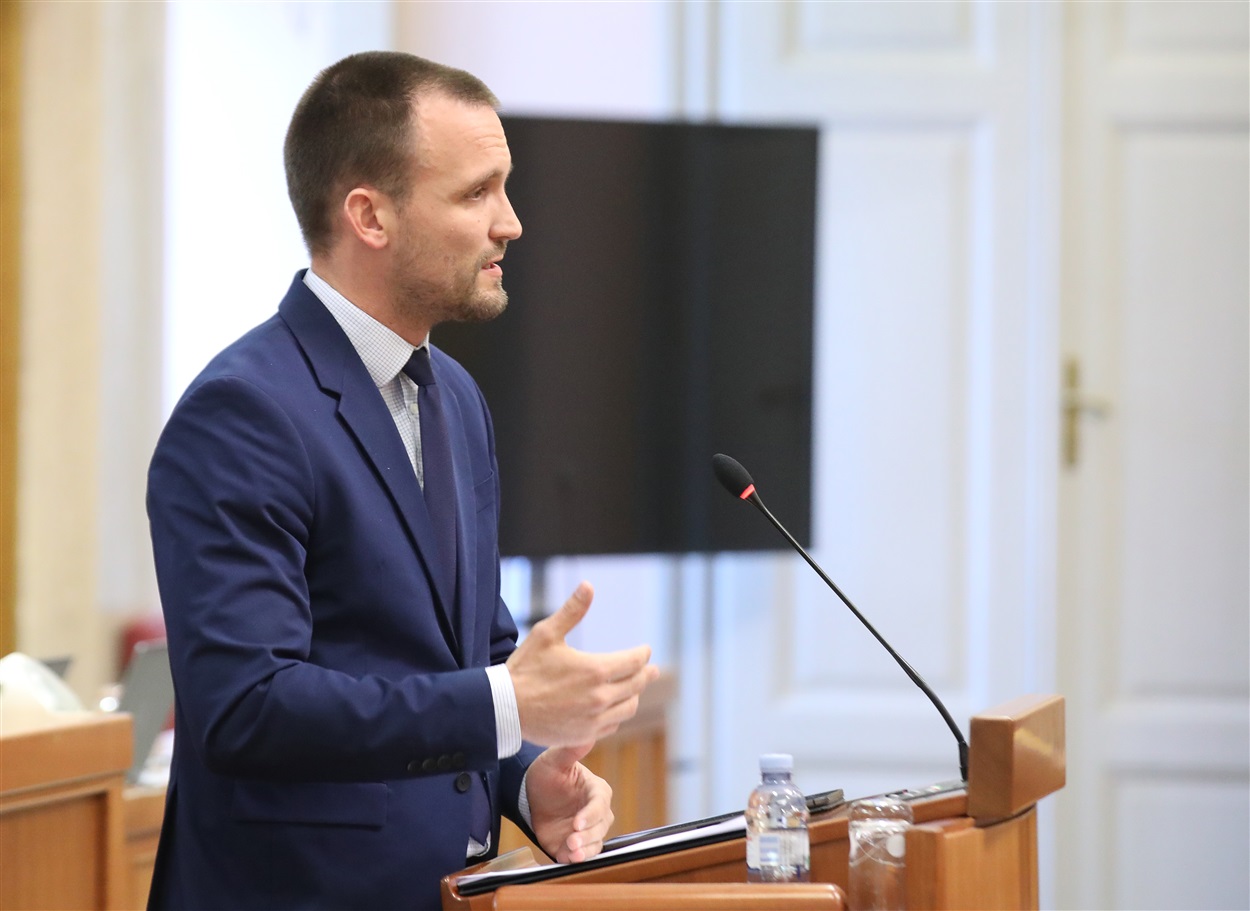
Zagreb - Regional Development and EU Funds Minister Šime Erlić said on Friday he sees Croatia among the most developed EU member states and countries in the world by 2030, while opposition MPs warned of falling standards and record-high inflation.
"By 2030, I see us alongside the most developed, the very world elite. Among the most developed EU member states and therefore among the most developed countries in the world," Erlić said in the Parliament during a debate on the annual report on the implementation of Croatia's National Development Strategy until 2030.
With this, he answered IDS MP Emil Daus, who was interested in how he sees Croatia in 2030 in general, given that Croatia has become a trade and service society with little production, with around 20 percent of GDP coming from tourism.
Erlić pointed out that "objective factors" encourage the government to achieve this, given the expected large investment potential and investments in areas such as green policies, digitalization, social welfare, health and education.
"A huge, never-before-seen investment cycle is currently underway in the Republic of Croatia, driven by EU funds and other means. It is to be believed that this will create a more competitive society, even better and better conditions, and a standard that every resident will be satisfied with," he said.
Opposition: We live in a "parallel reality and some kind of la-la land"
The opposition attacked the figures from the report, assessing that they show that "we live in a parallel reality and some sort of la-la land" and that the ruling party does not see how people live in reality.
Opposition representatives persisted in their criticism that the standard is falling, that the data are manipulative, that 400,000 people have left the country, and that more than ten percent of Croatian workers are foreigners.
"Don't you see how people in Croatia live? The standard is falling for the second year in a row, wages and pensions are falling in real terms, inflation has never been higher, the price of basic living expenses has risen by 20 percent," said Davor Bernardić (Social Democrats).
Erlić replied that the report used data based on European methodology and statistics, which clearly show that Croatia had twice as much GDP growth last year, namely 6.3 percent compared to the European average of three percent.
Regarding emigration from Croatia, Erlić said that it decreases every year. He explained that emigration has been continuous since joining the EU, but in the last year it was insignificant.
Opposition calls Erlić's data on the never-higher GDP growth a manipulation
Erlić, in response to the criticism of Katarina Peović (Labor Front) that data on GDP growth per capita show that Croatia grew more slowly than all comparable countries except Bulgaria, repeated that the whole of Europe recognises that Croatia is growing.
"The indicators are clear and exact. GDP is growing in absolute terms and has never been higher in history than it is today," the minister asserted.
SDP MP Andrea Marić warned that Croatia stands very badly according to the data on the health of the nation, because it is the second worst in the EU in terms of cancer mortality.
Erlić replied that EU funds are continuously invested in the health system, and that progress has been made in all counties regarding investments in day hospitals and primary health care.
SDP MP Siniša Hajdaš Dončić said that he will not participate in the vote on the report on Wednesday, demanding that the data in it be standardised.
This really looks amateurish, Božo Petrov (Most) told the ruling party, calling them out for trying to manipulate data that doesn't suit them.
When you take the presentation of the report from the government, the graphs do not contain the same measurement points, said Petrov.
Marko Pavić (HDZ) said that it is fascinating how much the opposition wants to distort data on GDP growth, employment and everything that the government does well.
He pointed out that other countries had ten years more to absorb EU funds, yet the Croatian minimum wage is approaching those in the Czech Republic and Slovakia and has exceeded those in Bulgaria and Romania.